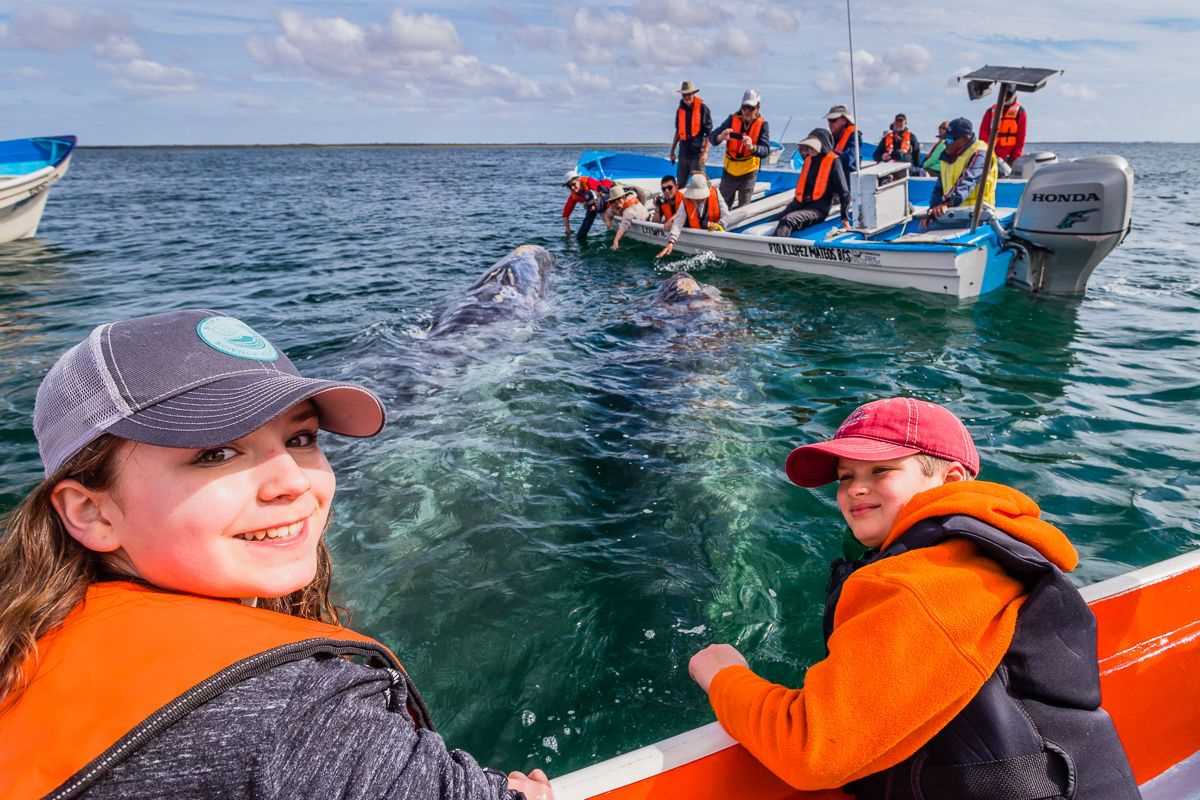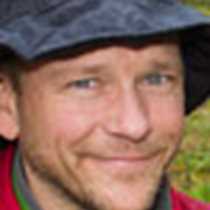In the 19th century, whalers from America, France, Holland and Russia hunted gray whales so aggressively that their numbers were severely diminished. Those whales had a reputation for fighting back, and because of that, the whalers called them “devil fish”. Fortunately, for us here in the 21st century, whales seem to have either forgotten, or forgiven us. Because today, we bore witness to a handful of these gentle giants approaching boat after boat to be delicately touched by dozens of us.
When our expedition leader told us that this was a “life-changing experience,” I was more than a bit dubious. Having passed my 50th birthday, I thought I was well beyond having an experience that would change my life, but I was wrong. I have seen many photos of this activity of “whale petting” for many years following other Lindblad expedition reports like this one. However, this experience is truly one of those that can change your life. Watching these majestic animals seemingly seeking out our attention and affection, with the knowledge of what our ancestors did to their ancestors, was truly a humbling experience for me.
I think of all wildlife sighting as gifts to be grateful for, and this is no different. I am reminded that when we seek out wild places that are pristine, and mostly untouched by humans, we set ourselves up for opportunities. Specifically, the opportunity to not only receive answers to questions that we might have about the natural world and our relationship to it, but more importantly, it enables us to ask questions that we couldn’t possibly have been able to ask before. By seeking out wild places, and wild creatures, we indeed position ourselves for enlightenment.
Furthermore, for the children that are lucky enough to enjoy an experience like this one, we can hope that they too will be inspired to follow in our footsteps to seek out their own wild places, and in doing so, cement the stewardship and conservation ethic that we strive to instill in them.







